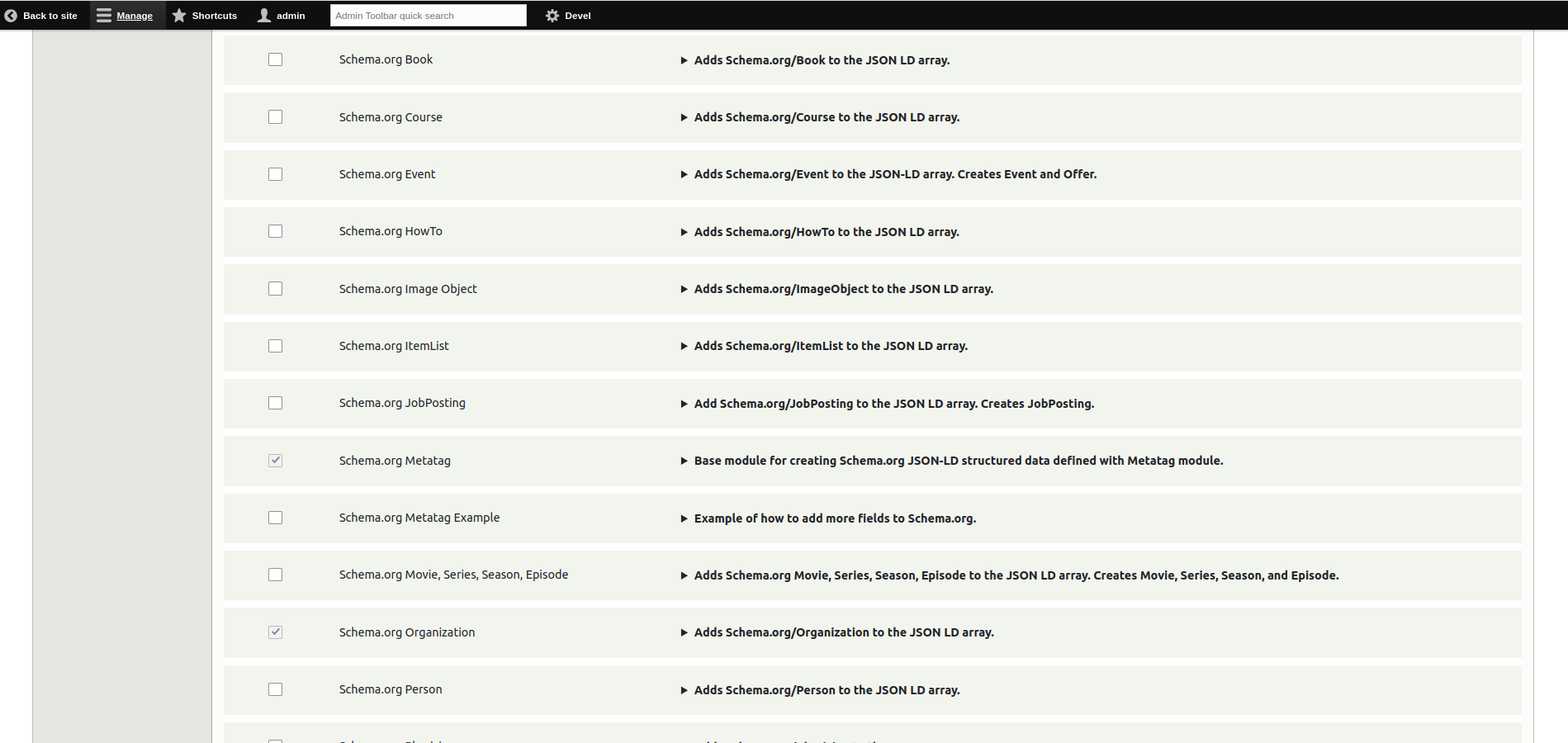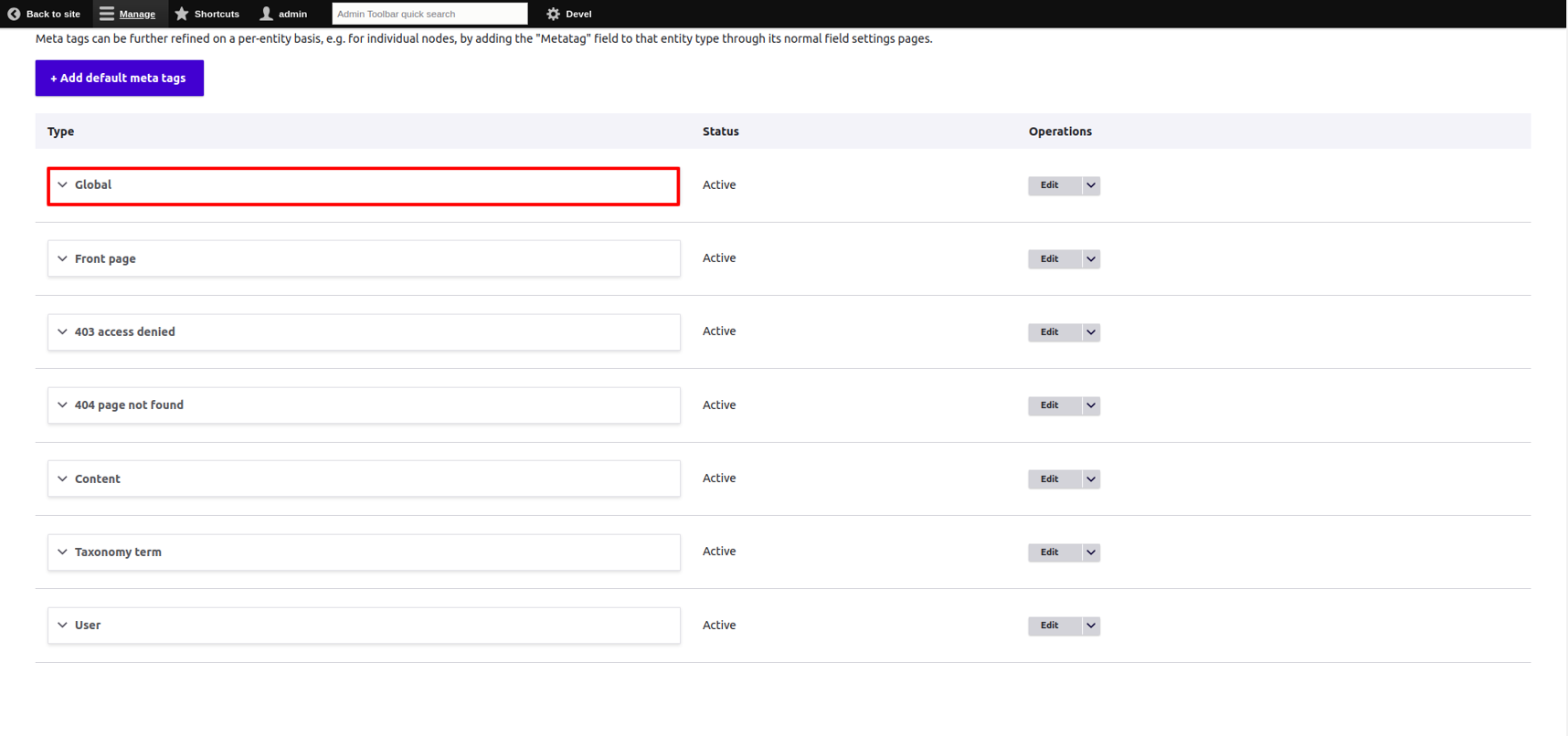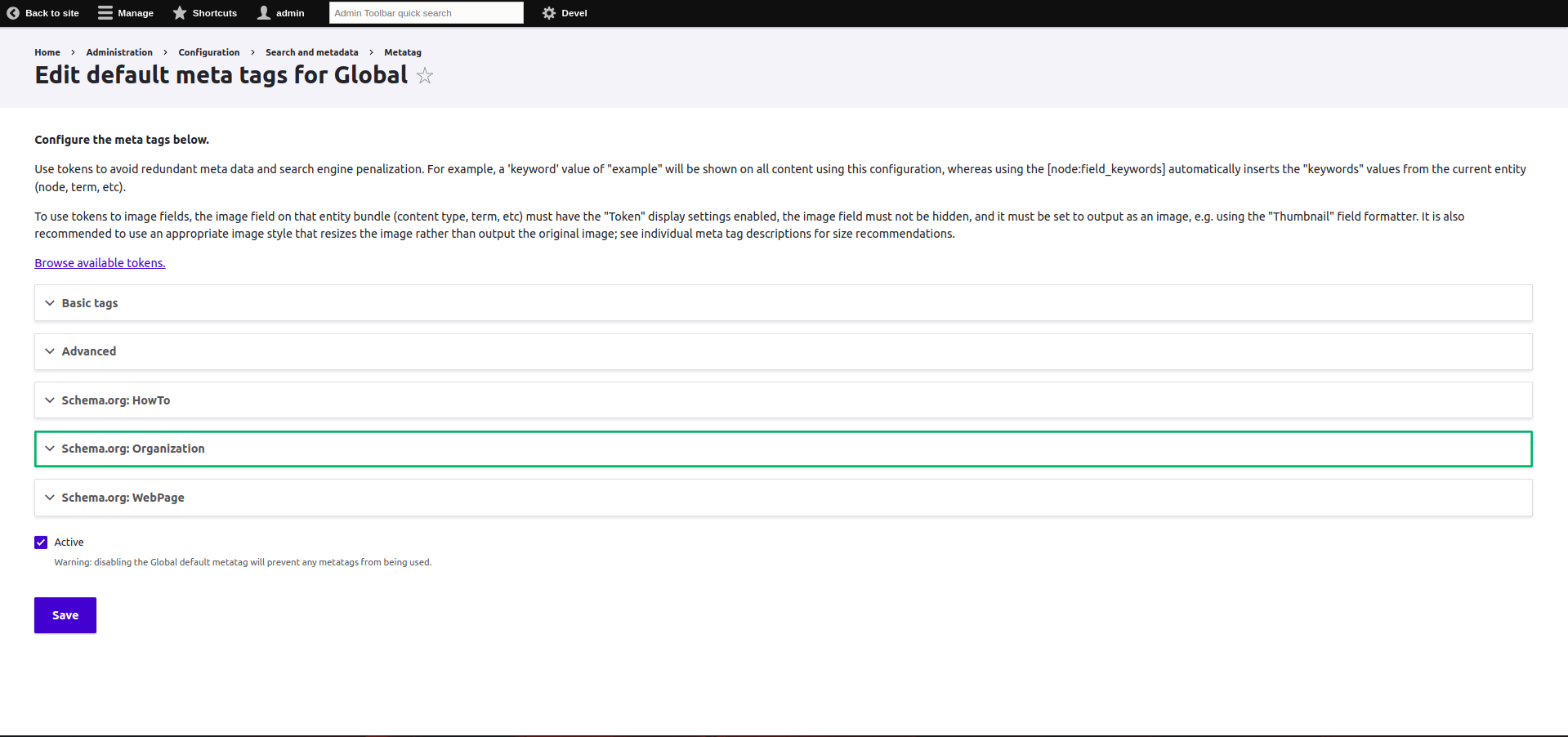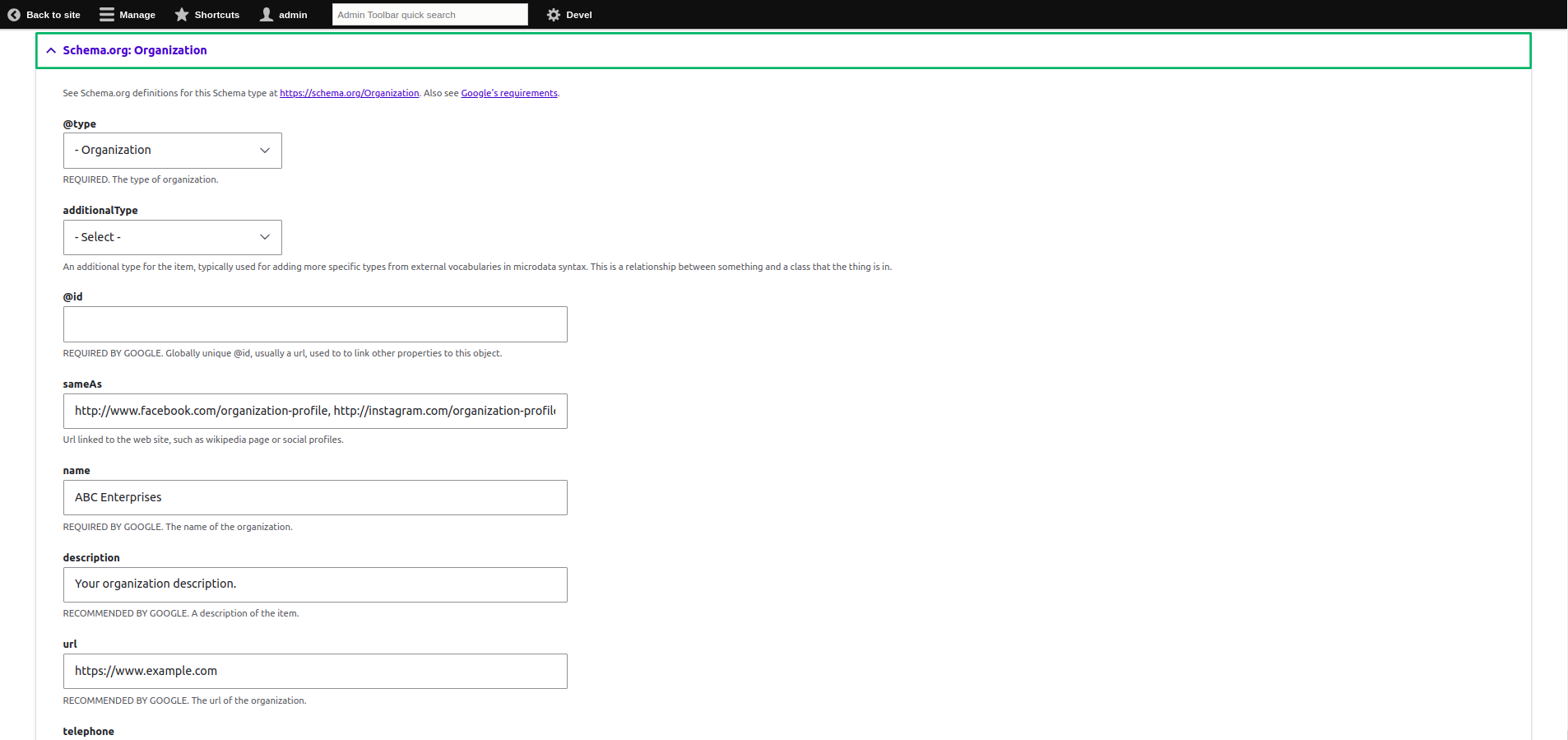Boost Your Drupal Site’s Visibility with Schema Markup
What is Schema Markup and why is it important for SEO?
Schema is a way of providing structured data to search engines that helps them understand the content and context of your website. Schema can improve your SEO by enhancing your visibility and relevance in the search results. For example, schema can display rich snippets, breadcrumbs, ratings, reviews, and other useful information that can attract more clicks and conversions.
Schema is based on a vocabulary of types and properties defined by schema.org, a community initiative supported by major search engines such as Google, Bing, Yahoo, and Yandex. Schema can provide context to an otherwise ambiguous webpage.
In this tutorial, we will demonstrate how to configure schema markup using Schema.org Metatag, a popular and easy-to-use Drupal module for schema implementation. This module extends the Metatag module and enables you to add schema types and properties to your website using a user-friendly interface.
Installing the Schema.org Metatag Module
The Schema.org Metatag module adds over a dozen schema types to your website, such as Organization, Person, Website, Article, Event, Product, Review, and more. You can choose the schema types that are most relevant to your website and content.
To configure the Schema.org Metatag module, follow these steps:
- Login to your Drupal site and Install the Schema.org Metatag module.
- Now you need to enable Schema.org Metatag and the schema type(s) that suit your needs from the extend list. Some common schema types that you can start with are Schema.org Organization, Schema.org Person, or Schema.org Website.

Configuring the Schema.org Metatag Module
- Go to Configuration > Search and metadata > Metatag from your navigation menu.
- To add schema to all pages of your website, click on the Edit button next to Global. To add schema to specific pages or content types, click on the Edit button next to the corresponding option. Here we are using global to add schema to all pages.

metatags config page
- On the Edit page, scroll down to the Schema.org section. You will see a list of schema types whose modules were installed previously. Some of them can be seen in the given image.

Organization type schema
- For each schema type, you will see a set of fields that you can fill in with the appropriate values. You can use Drupal tokens to auto-fill certain fields with dynamic data from your website. You can view the available tokens by clicking on the Browse available tokens link at the top of the page. The below screenshot shows an example of data that can be filled in for schema creation.

Schema Data
- After filling in the fields for each schema type, click on Save at the bottom of the page.
- The final output should be similar to the given image, as it represents the schema of the organization type.
 Repeat steps 3 to 5 for any other pages or content types that you want to add schema to.
Repeat steps 3 to 5 for any other pages or content types that you want to add schema to.
Note: Flush the site’s cache if changes do not reflect.
Conclusion
Schema is an important aspect of SEO that can help you improve your website’s performance and user experience. By using the Schema.org Metatag module, you can easily implement schema on your Drupal website without coding or technical skills.

